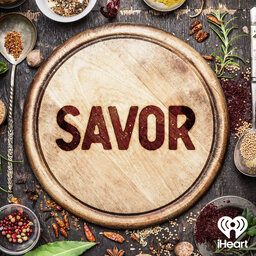Food Fairy Tales: 'Hansel and Gretel'
Food (and the lack thereof) plays heavily in this folk tale popularized by the Brothers Grimm. We explore the tropes in ‘Hansel and Gretel’, and special guests join us for a soundscaped reading of the story.
Learn more about your ad-choices at https://www.iheartpodcastnetwork.com
In 1 playlist(s)
Savor
Savor digs into how people live and how they eat – and why. Hosts Anney Reese and Lauren Vogelbaum i…Social links
Follow podcast
Recent clips

Oysters and Activism: The Thomas and George Downing Episode
38:18

Savor Gives You a Raspberry
36:28

Seeing Red Beans and Rice
35:46
 Savor
Savor